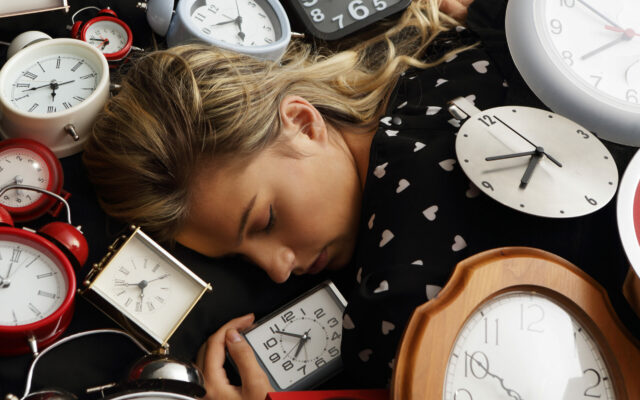WORK SMARTER NOT HARDER: Five Ways to Adjust to Daylight Saving Time

Health experts say Daylight Saving Time can really mess with our health – from increasing our stress-adding hormones like cortisol, to actually affecting our hearts and our ability to focus on necessary tasks – and congress is still addressing the possibility of eliminating the practice. The energy it had been intended to save is just not enough to justify the deadly effects it has on our travel, to name just one problem, as sleepy drivers cause serious or fatal crashes.
Most of us have trouble falling asleep at the right time, after we spring ahead. If it’s hard on you, here are five things which may help you adjust:
1. Get some exercise today. Even a brisk walk can help your body crave sleep a little more and compensate for that extra hour. Just don’t do it too late in the day. The Better Sleep Council says no later than two hours before bedtime.
2. Skip that extra cup of coffee later in the day. Caffeine stays in your body up to 12 hours. And even if you swear it doesn’t affect your sleep, it won’t hurt to cut yourself off a little early.
3. Don’t eat dinner too late. Try to eat at least three hours before bed. Later than that can mess with your sleep.
4. Don’t drink tonight. Alcohol can help you fall asleep faster, but the quality of your sleep suffers. So if you’re trying to adjust and get a good night’s sleep, avoid booze.
5. Put your phone away. You’ve heard it a million times, but the blue light messes with your hormones and keeps you up. And the stimulation from scrolling or playing games makes it harder for your brain to relax. So if you need to fall asleep tonight, stop using your phone and computer one hour before bed.
There’s some more adjustment, here: (Real Simple)






